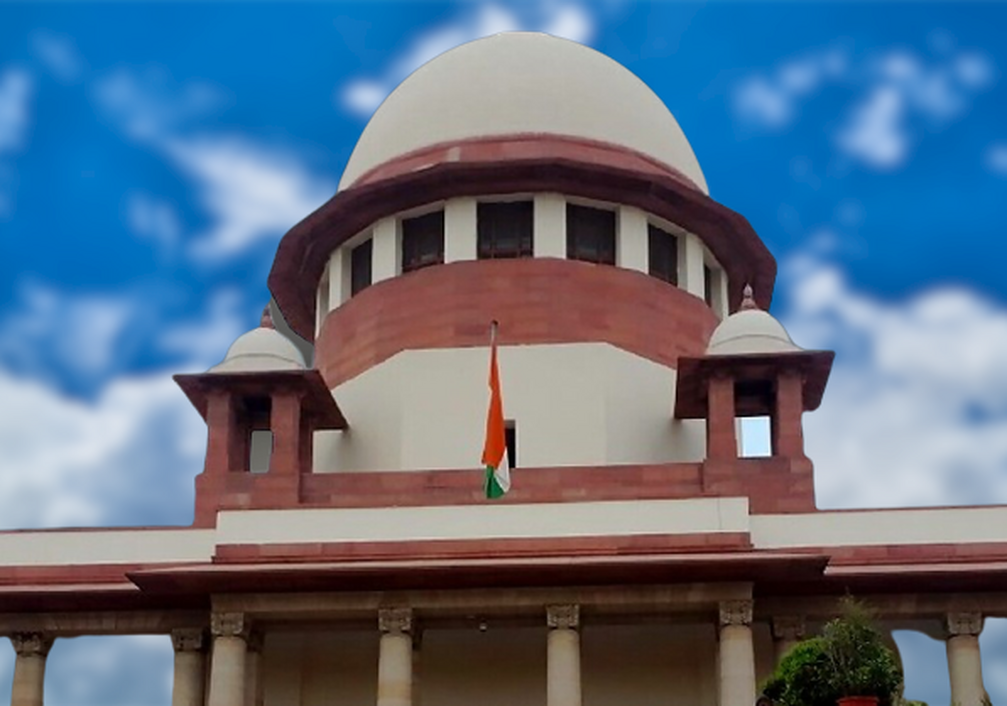In Civil Appeal No. 1628 of 2023 -SC- Power to amend VAT Acts ceased to exist after implementation of GST regime, rules Supreme Court
Justice S. Ravindra Bhat & Justice Aravind Kumar [20-10-2023]

Read Order: The State of Telangana & Ors V. M/s Tirumala Constructions
Chahat Varma
New Delhi, October 23, 2023: In a landmark judgment, the Supreme Court has clarified the scope of legislative powers under the Goods and Services Tax (GST) regime. The Court held that state legislatures had the power to amend or repeal existing tax laws during the transitional period of GST implementation, but this power ceased to exist once the GST regime was implemented on July 1, 2017.
The case stemmed from the judgments delivered by the Telangana, Gujarat, and Bombay High Courts and the constitutional framework established by the Constitution (101st Amendment) Act, 2016. This pivotal amendment brought about substantial changes to India's taxation system, paving the way for the GST, a comprehensive and unified taxation system. It granted new powers to both the Union Parliament and State Legislative Assemblies, redefining the federal nature of the Constitution.
There were three batches of appeals before the Supreme Court. The first batch related to the State of Telangana. The Telangana High Court had struck down amendments to the local VAT Act, which were made through an ordinance and later enacted by the State Legislature. The second batch of appeals related to the State of Maharashtra. The Bombay High Court had read down the Maharashtra VAT Amendment Act, which was made on 15.04.2017. The State Legislature then sought to reverse the effect of the High Court's judgment through an amendment which was given retrospective effect. The writ petitions filed by aggrieved parties were dismissed, and they were now in appeal before the Supreme Court. The third batch of appeals related to the State of Gujarat. The Gujarat High Court had struck down Section 84A of the Gujarat Value Added Tax Act, 2003, which was introduced by the Gujarat Value Added Tax (Amendment) Act, 2018. The High Court had held that the State Legislature lacked legislative competence to make such an amendment after 01.07.2017, and that the amendment was manifestly arbitrary.
The division bench of Justice S. Ravindra Bhat and Justice Aravind Kumar clarified the significance of Section 19 of the 101st Constitutional Amendment Act, emphasizing that it was a transitional provision enacted as part of the constituent power. This provision was deemed crucial to amend or repeal existing tax laws during the transitional period of GST implementation.
Further, the bench observed that the term ‘amend’ encompassed correcting, adding, deleting, or substituting elements in existing documents, enactments, or rules to improve them. This power had no inherent limitations, and it was an expression of sovereign legislative authority available to both Parliament and state legislatures to make necessary changes through amendments to existing laws. The only restriction was the time limit indicated in Section 19 (one year or until the new GST law is enacted).
The division bench upheld the validity of the Telangana ordinance and its subsequent approval through a state act, emphasizing that the ordinance was issued on June 17, 2016, a period when the Telangana State retained legislative competence.
Further, the bench declared that the retrospective amendments in both Gujarat and Maharashtra lost their legal validity with the implementation of the GST regime. It was stated that following the transition, state legislatures no longer possessed the authority to amend the VAT Acts, rendering the earlier amendments ineffective.
Consequently, the court concluded that Section 19 of the Constitution (101st Amendment) Act, 2016, and Article 246A were enacted as part of a transitional arrangement with the effect of allowing state legislatures and Parliament to amend or repeal existing laws, as they continued to operate for a specified period. The other provisions of the Amendment Act deleted heads of legislation from List I and List II of the Seventh Schedule to the Constitution of India. Section 19 and Article 246A reflected the constituent expression that existing laws would continue and could be amended, without limitations. This finding resulted from the vacuum created by the 101st Amendment, which removed legislative heads. Consequently, the amendments made to the Telangana VAT Act and the Gujarat VAT Act after 01.07.2017 were rightly held void for lack of legislative competence by the Telangana and Gujarat High Courts. The Bombay High Court's decision, which upheld the amendments to the Maharashtra Act requiring pre-deposits, was set aside and declared void.
In conclusion, the appeals filed by the States of Telangana and Gujarat were dismissed, while the appeals of the assessees against the judgment of the Bombay High Court was allowed.
Sign up for our weekly newsletter to stay up to date on our product, events featured blog, special offer and all of the exciting things that take place here at Legitquest.




Add a Comment